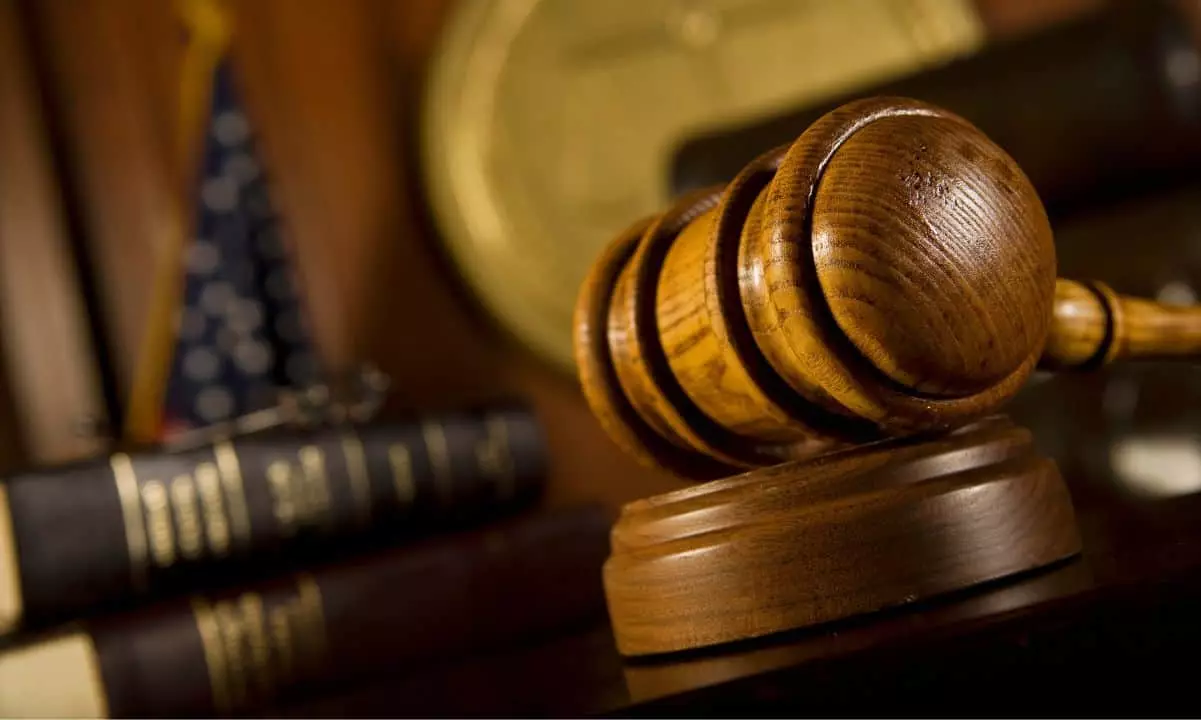In an unprecedented legal saga, James Howells is taking Newport Council to court, seeking nearly £500 million for the loss of 8,000 Bitcoin (BTC) that he claims vanished due to a tremendous error resulting from the council’s lack of action. This situation unravels a modern-day tale woven into the fabric of cryptocurrency’s rise and fall, echoing the complexities of digital asset ownership and municipal responsibilities. At the heart of this conflict lies a hard drive disposed of carelessly in 2013, as Howells insists that the council’s negligence led to irreversible loss — a claim that dives deep into questions of liability and ownership that persist in our evolving digital age.
Howells’ story began a little over a decade ago when he, an early adopter of Bitcoin, mined the cryptocurrency at minimal expense, only to encounter the unfortunate circumstance of losing track of his digital fortune. The hard drive containing the critical data was thrown away during a cleanup of his home office, following a communication breakdown with his then-partner. While the stakes were merely few hundred pounds at the time, the subsequent valuation of the crypto market has pushed the worth of those lost coins into the stratosphere, now valued at an almost unfathomable £500 million, especially after Bitcoin’s all-time high earlier this year.
Legal Maneuvering and Strategic Calculations
The enormity of his claim does not merely reflect the market value of his Bitcoin holdings but is rather a calculated strategy to compel the Newport Council into a desired response — an excavation of their landfill where he believes the hard drive lies. Howells portrays this lawsuit as a final attempt to gain traction after being ignored by the council for over a decade. Despite the ludicrousness of the original loss, he has assembled an expert team ready to facilitate a potential £10 million excavation at no expense to the council, alongside a lucrative proposition of sharing a percentage of any recovered Bitcoin.
However, the council’s response has been dismissive. Their legal representatives argue that, upon discarding the hard drive, Howells unwittingly relinquished ownership. Thus, the battle spills into murky waters concerning legal precepts surrounding lost property and unused disowned assets. They describe Howells’ claims as “weak” and echoed concerns regarding the environmental ramifications of excavation — an aspect that further complicates the prospects of recovery.
The Road Ahead: Hurdles and Hopes
As the court date looms closer, slated for December, the prospects of handling this matter legally march toward uncertain terrain. Legal teams on both sides prepare to navigate the chaotic waters of digital property rights and environmental law. Given estimates from experts suggesting an 80% probability of data recovery, the notion of excavation becomes an enticing but daunting challenge. The excavation itself could span over 18 to 36 months, making this situation not just a simple dispute, but an extensive operation that would require cooperation between the local council and Howell’s specialized team.
Moreover, the environmental implications of such an excavation are vast; the Newport landfill has faced scrutiny and repeated violations of environmental regulations, raising questions about the potential hazards of digging up the site. Howell’s team has pledged to modernize this facility due to past infractions, providing a measure of reassurance and promoting an avenue for collaboration that the council may find appealing.
This case transcends just Howell’s personal saga; it raises critical discussions regarding digital ownership and the intertwining responsibilities of local authorities in safeguarding citizens’ interests. As bridges between digital advancements and traditional legal frameworks continue to be built and tested, Howells’ case may serve as a landmark in recognizing the inherent value of digital currencies and the potential legal ramifications of their loss.
Both parties face a daunting path ahead; for Howell, it is a quest not just to recover lost Bitcoin, but to redefine his place in the narrative of digital asset ownership in legal contexts. On the flip side, Newport Council has the opportunity to address pressing legal and environmental questions in a developing digital economy. The courtroom will not just dissect the potential recovery of lost crypto, but it will also highlight the nascent realities that accompany the rise of digital assets in an ever-expanding financial universe.

